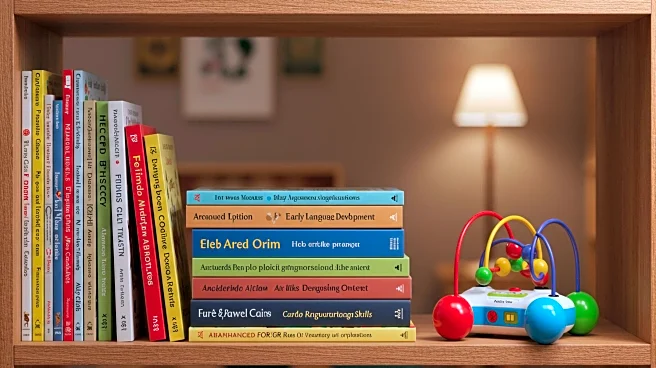What's Happening?
Madeleine Beekman's new book, 'The Origin of Language', proposes that the demands of childcare may have driven the evolution of human language. Beekman, an evolutionary biologist, suggests that the complexity of caring for underdeveloped human infants necessitated the development of language as a tool for communication. She links this idea to the evolutionary changes in human anatomy, such as bipedality and large brain size, which resulted in early births and prolonged infant care. Beekman's theory adds to the ongoing debate about the origins of language, challenging traditional narratives that focus on tool-making or social interaction as primary drivers.
Why It's Important?
Beekman's hypothesis places women and children at the center of language evolution, offering a fresh perspective on the role of caregiving in shaping human development. This approach challenges male-centric narratives in evolutionary science, highlighting the significance of maternal and infant interactions in the development of complex communication systems. The book contributes to broader discussions about the social and biological factors influencing human evolution, potentially reshaping academic and public understanding of language origins.
Beyond the Headlines
The book's focus on childcare as a catalyst for language evolution raises questions about the intersection of biology and culture in shaping human development. It invites further exploration of how caregiving practices have influenced other aspects of human society, such as social structures and gender roles. Beekman's theory also prompts consideration of the ethical implications of scientific narratives that prioritize certain evolutionary factors over others.









